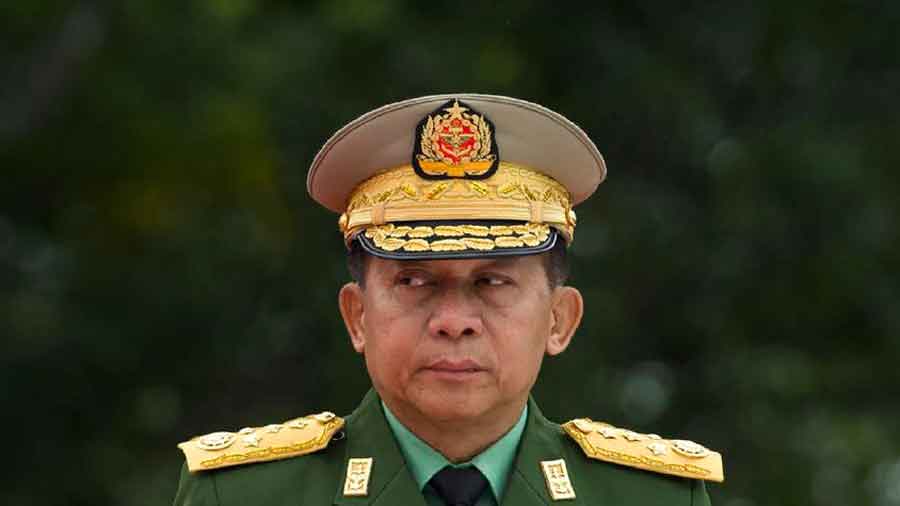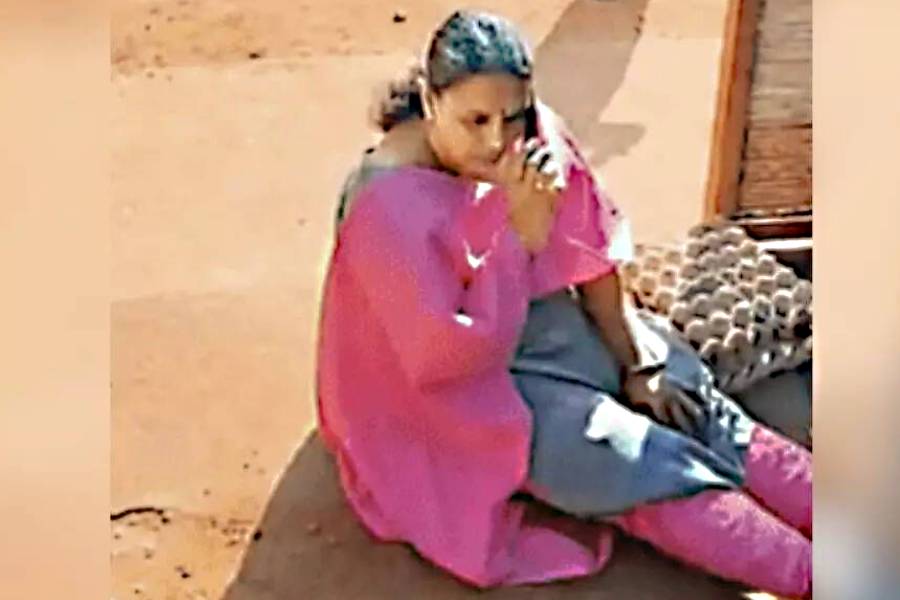Six months to the day after Myanmar’s military staged a coup and imposed a reign of terror over the country, the junta’s leader, Senior Gen. Min Aung Hlaing, said on Sunday that a national state of emergency would be extended for another two years.
The move, announced in a televised address, effectively ruled out any return to democracy before 2023 for Myanmar, which only last year was seen as a rare case in which an authoritarian regime had peacefully handed over some power to an elected government. It also contradicted the generals’ assurances, soon after the coup, that they were serious about bringing political freedoms back.
Later on Sunday, the State Administration Council, as the junta calls itself, announced the formation of a new caretaker government with General Min Aung Hlaing as Prime Minister.
“From the beginning, we knew that they would not keep their promises and that they would get the political environment they wanted,” said Ko Aung Thu, a leader of the nationwide resistance to the coup. “If they extend the state of emergency until August 2023, we must continue to protest until they somehow fall.”
Since the February 1, at least 940 people have died at the hands of Myanmar’s security forces, according to a tally kept by a monitoring group that closely tracks the killings. More than 5,400 people are in detention, including all of Myanmar’s senior elected leadership.
Daw Aung San Suu Kyi, the country’s 76-year-old civilian leader, has been charged with various crimes, including sedition, that could keep her imprisoned for the rest of her life. Her National League for Democracy party was ordered to dissolve.
Myanmar is also being consumed by the coronavirus, a health disaster that has been exacerbated by the junta’s obduracy. The military has monopolised oxygen supplies, stalled vaccinations and kept lifesaving treatments from those who have opposed its rule.
A private trade in oxygen was made illegal. Bodies are piling up at crematoriums, witnesses said, even as the national health authorities, under the control of the junta, report suspiciously low death tolls each day. Officially, Myanmar reported 4,725 Covid cases and 392 deaths on Saturday.
In his speech on Sunday, General Min Aung Hlaing, dressed in civilian clothes, said he was concerned about the pandemic. “Nothing other than individual life is of crucial significance,” he said. “That’s my policy.”
The junta, however, has all but halted a vaccination campaign and has reserved injections for its soldiers. In contrast, some ethnic armed groups in Myanmar that have fought the military for decades have carried out mass inoculations in territory that they control.
Representatives of some of those ethnic groups have joined members of Myanmar’s ousted elected government, along with civil society leaders, to form what they call the National Unity Government, which is operating in hiding.
Despite a climate of fear created by the military crackdown and the raging virus, a nationwide protest movement has sustained itself for half a year.
The American Embassy said on Sunday that the US remained “firmly committed to supporting the people of Myanmar in their aspirations for a democratic, inclusive future”, saying they had shown “remarkable courage and conviction” since the coup.
General Min Aung Hlaing confirmed on Sunday that the military had annulled the results of the national elections held in November, claiming that the National League for Democracy, which badly beat the military’s proxy party, had committed electoral fraud. He also repeated his assurance that elections would one day be held again, though he gave no indication of when.
“Collective solidarity among all national peoples can overcome the Covid pandemic,” the general said. “And building a genuine, disciplined multiparty democratic system will be successful.”
Protesters said they would persevere against the junta.
“As their crackdown on protesters escalates, we must try to break the connection between them, the managers of violence, and the soldiers who are their implementers,” Aung Thu said.
New York Times News Service










